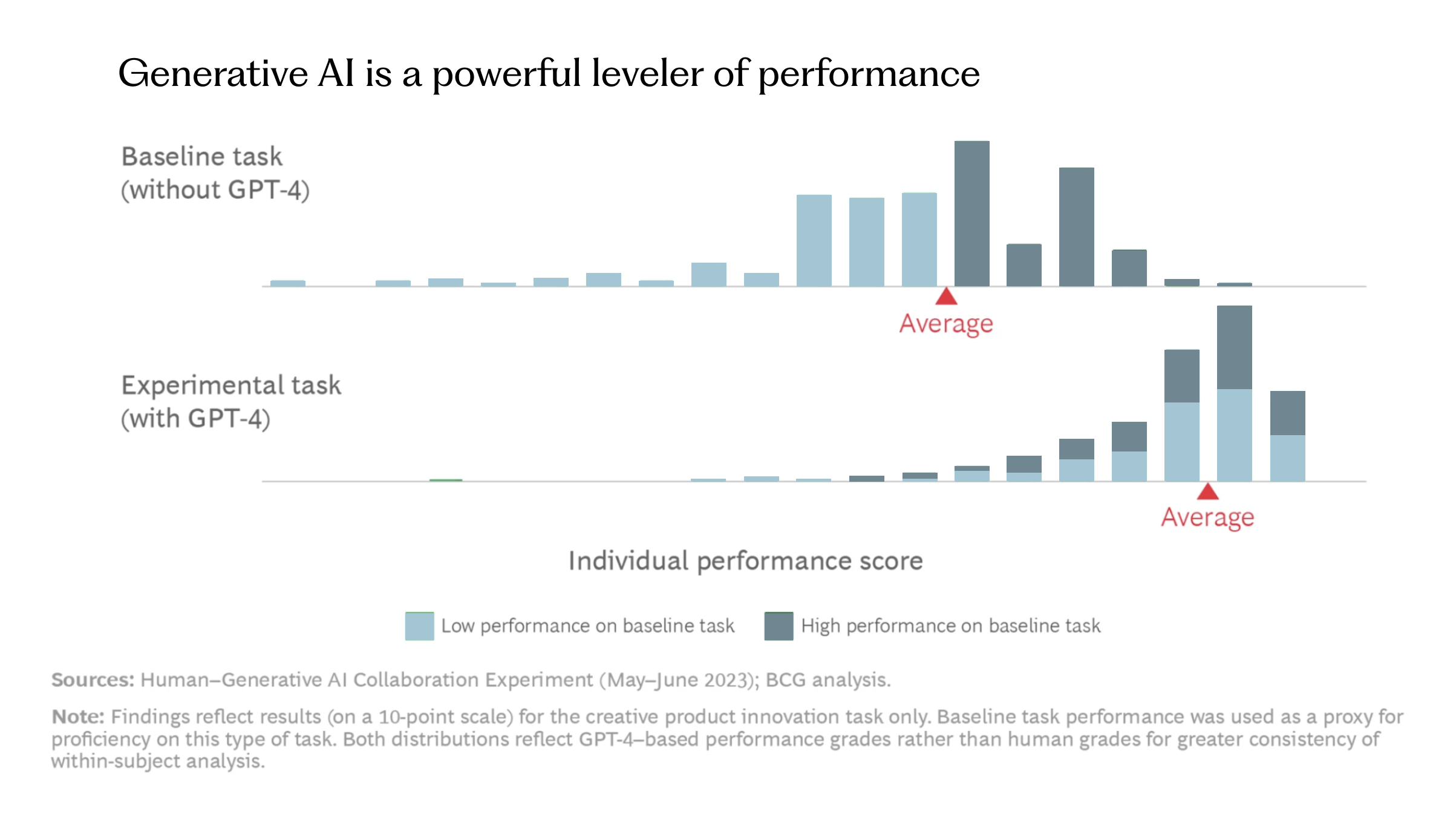How to become an AI-empowered generalist
Meet Hedy Lamarr.
Hedy Lamarr in 1944 (source: Wikipedia, Public domain)
Lamarr was one of the most dazzling stars of Hollywood's Golden Age. Her work in blockbusters like Samson and Delilah (1949) later earned her a star on Hollywood’s Walk of Fame.
But there was also a twist to Lamarr’s story.
People watching her movies on Apple TV might not realize she also influenced the invention of the Wi-Fi it streams on.
In her spare time, Lamarr was an avid inventor. With no formal training, she paired with pianist George Antheil to devise a method of radio frequency hopping to prevent jamming by enemies during World War II. This invention later formed the basis of modern spread spectrum technologies like Bluetooth and Wi-Fi.
Lamarr was the quintessential generalist - able to pull threads from seemingly unrelated fields to forge something ground-breaking.
From specialization to AI-empowered generalists
For decades, the global capitalist machine has pushed us towards deeper specialization.
As the cost of collaboration across organizational and national borders has plummeted, it has made sense for many of us to develop more distinct skills. There has been a global demand for a motion designer focused only on 3D animation.
There are early signs that generative AI is introducing a counter-trend.
Research by Boston Consulting Group in 2023 showed that using tools like GPT-4 increased the relative output of low performers the most (figure below).
Generative AI levels performance - low performers get a significant boost in their performance on tasks (BCG study, 2023)
Generative AI is a leveler of performance in tasks
What does this mean for us?
I think we’re entering an era of the AI-empowered generalist. These folks can reach beyond their abilities by leaning heavily on generative AI tools.
Here are examples of AI-empowered generalists:
A UX designer who trains a team of GPT’s to write excellent microcopy for a service
A marketing manager who relies on Midjourney and GPT-4 to create a strategy, creative concept, artwork, and copy for a social media campaign
A product owner who builds a landing page using no-code tools like Webflow, assisted by GPT-4 for the copy and technical issues
I am also an example of an AI-empowered generalist. I’m niched down on gen AI for design and innovation, but as a solo entrepreneur, I juggle dozens of things, from marketing strategy to writing and legal issues. With the help of generative AI, I can raise my output level from 3/10 to 7/10 on things I’m not an expert in.
Generative AI can help us expand our skills beyond our core.
How to become an AI-empowered generalist
Now, let's dive into some practical tactics.
There are three things we can do to get started on this path.
1. Ramp up your knowledge 10X faster
AI tools like GPT-4 can help us ramp up on unfamiliar topics faster than ever. This ability to lean on AI tools can give us a newfound confidence to tackle new areas.
Here are some concrete ways to do it:
Ask GPT-4 to explain an unfamiliar concept to you like you’re ten years old
Use the Tree of Thought approach: start asking questions from GPT-4 about a broader theme and dive into different “branches” of the bigger theme with follow-up questions
Ask the AI to rate your knowledge of an unfamiliar topic and provide feedback on any knowledge gaps you might have
2. Create a first draft with AI
With the help of generative AI, we can produce a more competent first draft of anything.
If you’re a designer with an idea of an illustration style, you can quickly create the first mockups with AI-generated illustrations. This first mockup can help you move the project along until you potentially bring a specialist illustrator on board.
Shortly, a product owner can create a first mockup of a product idea using Figma AI to facilitate discussions with stakeholders and developers.
Creating better first drafts with AI doesn’t necessarily eliminate the need for specialists, but it allows us to move things along without deep expertise.
3. Build a team of AI mentors
For any complex task you’re working on, you can train a gen AI mentor and coach to help you.
Here are some examples that have been helpful to me:
Bookmarking different ChatGPT threads for different technical issues like details of Webflow or Convertkit troubleshooting
Asking GPT-4 to coach me on thorny analytical and emotional topics like the future direction of my business
Instructing GPT to coach me on a new project, asking me questions to tune my own thinking and find any gaps
Using GPT-4 as a mentor to broader your capabilities
Fuzzy skill boundaries and the future
We’re seeing the democratization of most knowledge-based skills. Design, coding, writing, and other skills are becoming more accessible with gen-AI as a crutch.
Will this eliminate the need for specialists?
History suggests it won’t. Painting survived photography, and professional photographers exist in the age of endless smartphone photos.
The world will still need masterful writers and truly innovative designers.
Most likely, we’ll see an overall increase in output levels and the ability for professionals to reach beyond their past skill limitations with AI.
The individuals and small teams that most embrace this trend will have an outsized impact on the world.
Want to make sure you catch my next article?
This article was first published on my weekly newsletter on how to use generative AI for design and innovation.




